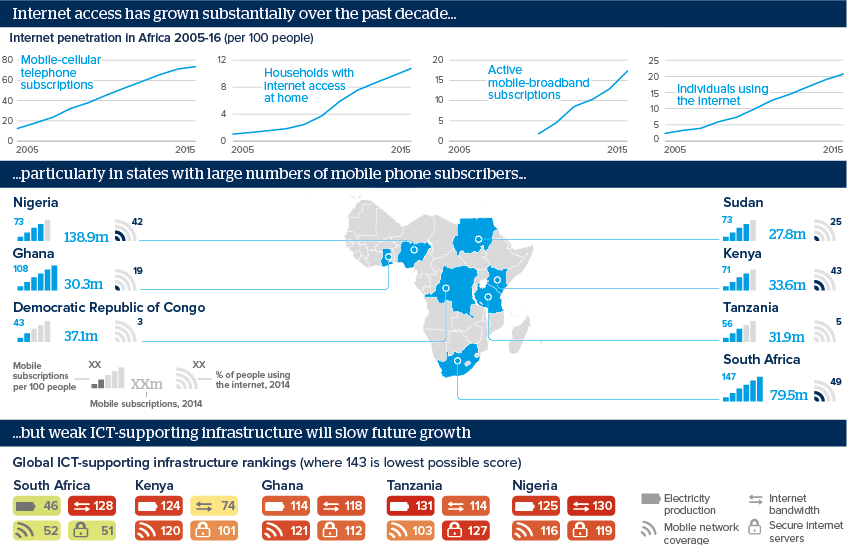Africa's anticipated internet boom could disappoint
Lacklustre investor interest, lack of electricity and poor network infrastructure could hamper mobile internet growth

Source: WEF, Deloitte, ITU, FT Analyse Africa, McKinsey, Ericsson
Outlook
Several forecasts are bullish on the sub-Saharan Africa (SSA) communications sector. Telecoms firm Ericsson expects mobile penetration to reach 100% by 2021, supporting a 15-fold increase in mobile data traffic. McKinsey says internet penetration will triple to around 50% by 2025, mainly via smartphones.
Such projections trigger enthusiastic speculation on the development potential -- from boosting financial inclusion using mobile banking to delivering education and health sevices remotely to rural areas. Yet even SSA's best-connected economies face critical deficits in infrastructure necessary for underpinning telecoms expansion.
Foreign investor appetite is lagging. Communications projects accounted for only 7% of FDI in capital investments in 2014; software and IT services investment was unchanged.
Impacts
- Nigeria's 5.2-billion-dollar fine on operator MTN will heighten business risk perceptions, potentially dissuading foreign investment.
- Ethiopia's vast unbanked population will attract interest from mobile banking firms, but strict regulation will prevent rapid expansion.
- Low internet penetration (under 5%) in states such as Benin and Guinea will stymie services sectors, exacerbating reliance on commodities.
- In South Africa's Western Cape province, the ruling Democratic Alliance will prioritise free Wi-Fi to boost its 2016 local polls chances.